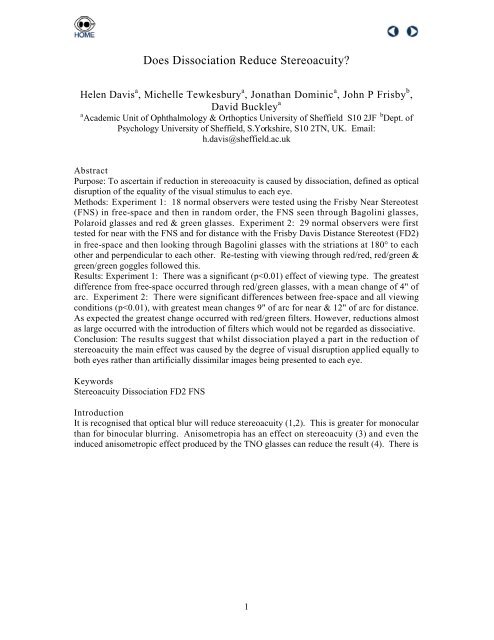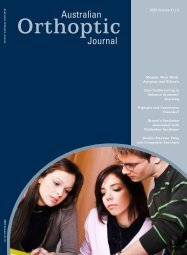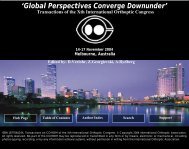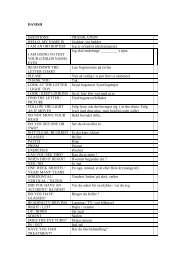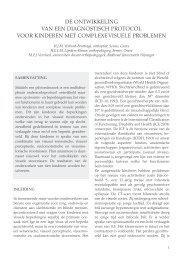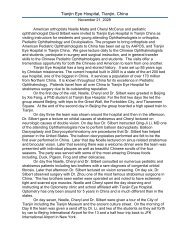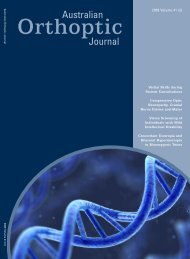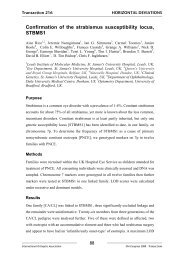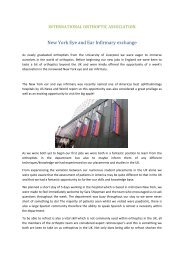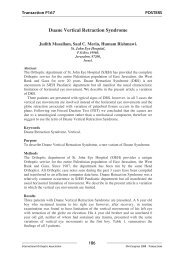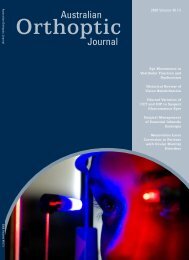Transactions from the Xth International Orthoptics Congress 2004
Transactions from the Xth International Orthoptics Congress 2004
Transactions from the Xth International Orthoptics Congress 2004
You also want an ePaper? Increase the reach of your titles
YUMPU automatically turns print PDFs into web optimized ePapers that Google loves.
Does Dissociation Reduce Stereoacuity?<br />
Helen Davis a , Michelle Tewkesbury a , Jonathan Dominic a , John P Frisby b ,<br />
David Buckley a<br />
a Academic Unit of Ophthalmology & <strong>Orthoptics</strong> University of Sheffield S10 2JF b Dept. of<br />
Psychology University of Sheffield, S.Yorkshire, S10 2TN, UK. Email:<br />
h.davis@sheffield.ac.uk<br />
Abstract<br />
Purpose: To ascertain if reduction in stereoacuity is caused by dissociation, defined as optical<br />
disruption of <strong>the</strong> equality of <strong>the</strong> visual stimulus to each eye.<br />
Methods: Experiment 1: 18 normal observers were tested using <strong>the</strong> Frisby Near Stereotest<br />
(FNS) in free-space and <strong>the</strong>n in random order, <strong>the</strong> FNS seen through Bagolini glasses,<br />
Polaroid glasses and red & green glasses. Experiment 2: 29 normal observers were first<br />
tested for near with <strong>the</strong> FNS and for distance with <strong>the</strong> Frisby Davis Distance Stereotest (FD2)<br />
in free-space and <strong>the</strong>n looking through Bagolini glasses with <strong>the</strong> striations at 180° to each<br />
o<strong>the</strong>r and perpendicular to each o<strong>the</strong>r. Re-testing with viewing through red/red, red/green &<br />
green/green goggles followed this.<br />
Results: Experiment 1: There was a significant (p


